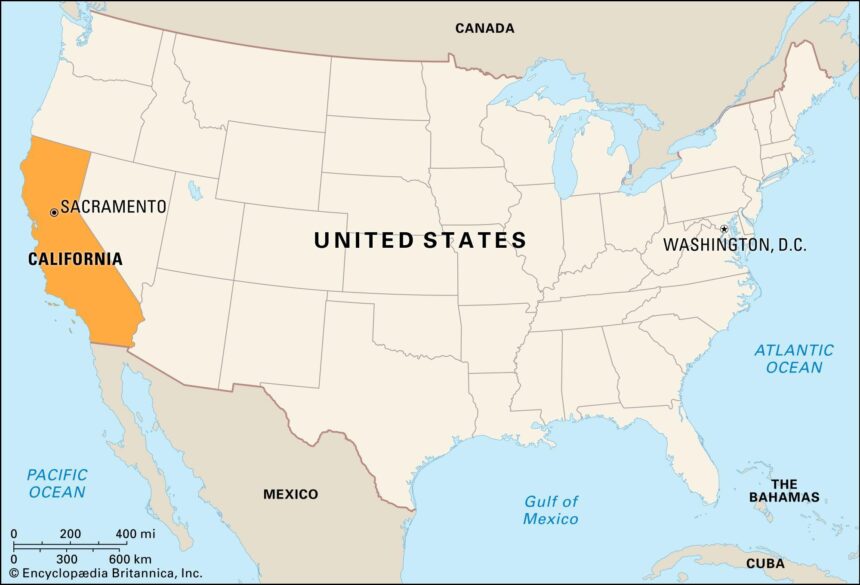In a significant legal showdown, the state of California has filed a lawsuit against the U.S. Department of Justice (DOJ) in response to the federal agency’s decision to withhold up to $165 million in funds earmarked for victim services. This funding, which has been vital for supporting crime victims throughout the state, is now at the center of a contentious dispute that underscores the ongoing tensions between state and federal authorities. California officials argue that the DOJ’s actions undermine critical support systems for vulnerable populations, while the federal government defends its decision as necessary for compliance with specific guidelines. As the case unfolds, it highlights the broader implications for victim assistance programs and the intricate balance of power in the allocation of federal resources.
California’s Legal Battle: State Sues DOJ Over Funding Cuts for Crime Victim Services
In a bold move, California has initiated a legal challenge against the Department of Justice (DOJ), claiming that proposed funding cuts could cripple essential crime victim services across the state. With the potential loss of up to $165 million, advocates warn that the impact would be devastating, affecting numerous programs designed to support the victims of crime. The state contends that these funds are crucial for a range of services, including mental health support, legal aid, and emergency shelter, aimed at aiding those who have suffered from violent crimes.
State officials argue that the DOJ’s actions are counterproductive, particularly at a time when crime victim services are already stretched thin. The suit emphasizes the importance of maintaining consistent funding to ensure the well-being of victims, allowing them to access necessary resources without interruption. Key points of contention in the lawsuit include:
- Impact on Community Services: Many local organizations rely heavily on federal funding for victim support programs.
- Legal Precedents: California asserts that the DOJ’s funding practices could violate established legal obligations to provide aid to victims.
- Long-Term Solutions: The state is advocating for sustainable funding models to protect these essential services from future cuts.
Impact on Victims: Analyzing the Consequences of Withheld Funds in California
The potential withholding of up to $165 million in funds for victim services by the Department of Justice poses a grave threat to countless individuals and communities across California. Victim support programs, which rely heavily on these funds, often serve the most vulnerable populations, providing essential services such as legal assistance, counseling, and emergency housing. Without these critical resources, victims of crime may face severe repercussions, including:
- Increased Anxiety and Trauma: The lack of support can exacerbate mental health issues, leading to prolonged suffering.
- Barriers to Justice: With fewer resources, victims may struggle to navigate the legal system and receive the justice they deserve.
- Disruption of Rehabilitation Efforts: Vital programs aimed at helping victims rebuild their lives may be severely impacted, leading to greater societal harm.
This funding crisis not only undermines the support structure currently in place but also reflects a broader disregard for the welfare of crime victims in the state. As California authorities prepare to combat this withdrawal of funds, the ramifications of losing such significant financial backing could ripple through support networks, potentially resulting in:
| Consequences | Impact |
|---|---|
| Service Closures | Reduction in available victim support services across the state. |
| Increased Crime Rates | A potential rise in crime as support systems falter. |
| Community Stress | Heightened tension and distress within communities reliant on these services. |
Path Forward: Strategies for Ensuring Continued Support for Victim Services in the State
In light of the recent legal actions taken by California against the Department of Justice, it is crucial to implement a comprehensive strategy to bolster victim services within the state. Lawmakers and stakeholders can consider a variety of approaches, including:
- Increased Funding Allocation: Advocating for state budget provisions that prioritize victim services funding to compensate for potential federal shortfalls.
- Partnership Development: Creating alliances between state agencies, non-profits, and community organizations to ensure that resources are pooled effectively and outreach efforts are maximized.
- Public Awareness Campaigns: Initiating campaigns that inform the public about available victim services and empower individuals to seek help, while fostering a community-centric support network.
To monitor and evaluate the effectiveness of these strategies, establishing a Victim Services Task Force would enhance accountability and allow for adaptive responses to challenges that arise. This task force could include representatives from:
| Entity | Role |
|---|---|
| State Government | Policy Development and Oversight |
| Non-Profit Organizations | Service Provision and Community Engagement |
| Law Enforcement | Coordination and Support |
| Victim Advocates | Direct Support and Resources |
By leveraging these collaborations and focusing on sustainable funding methods, California can ensure that vital victim services continue to meet the growing needs of those affected by crime, ultimately enhancing the state’s commitment to justice and recovery.
The Conclusion
In conclusion, the legal battle between California and the Department of Justice underscores the critical tension between federal and state authority in the allocation of funds for victim services. As California seeks to assert its rights to the financial resources intended to support vulnerable populations, the outcome of this lawsuit could have significant implications for funding structures across the nation. With the state attorney general vowing to fight for the survival of essential services, all eyes will be on the unfolding proceedings to see how they might reshape the landscape of victim assistance and federal funding practices. The stakes are high, not just for California but for advocates and survivors seeking justice and support across the country.









